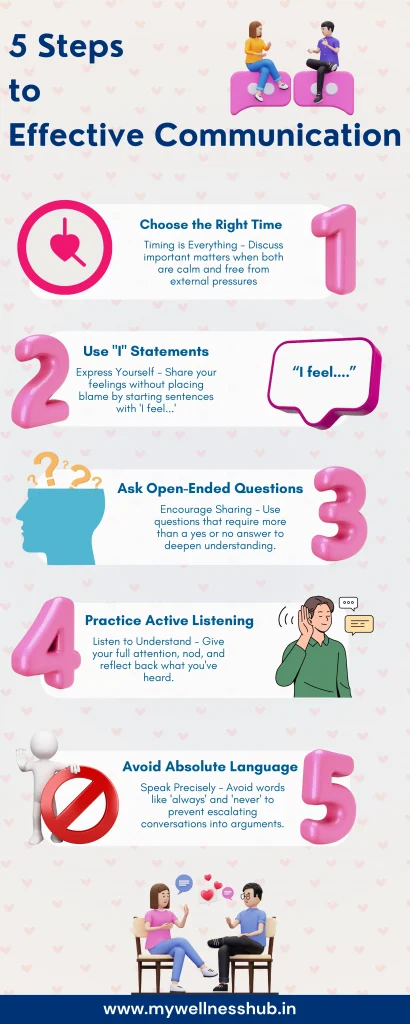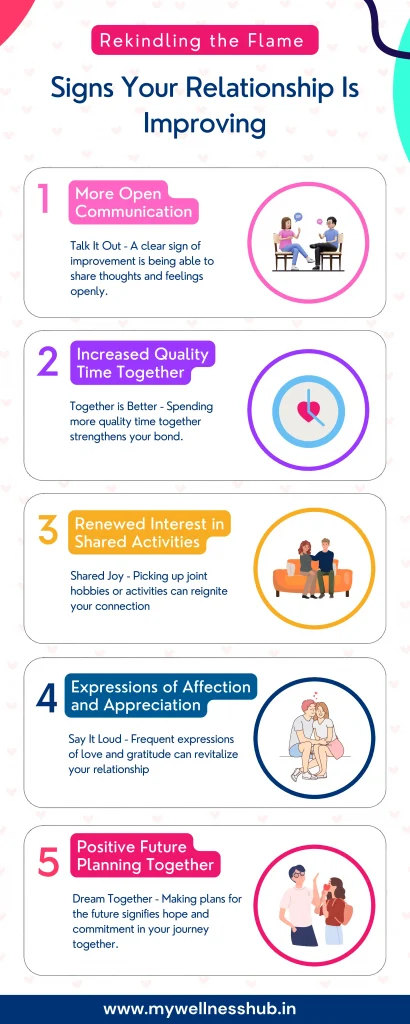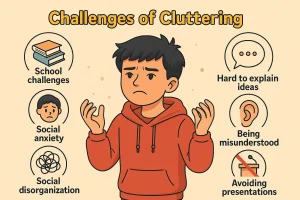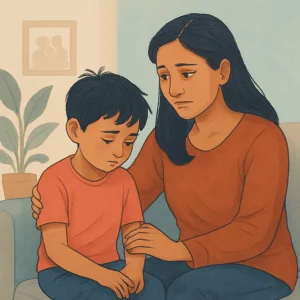Navigating Love: Why Is My Husband Only Cold to Me?
By Prapoorna M
Last Updated: July 31, 2024
Have you ever felt like you’re living a paradox in your own home? On one hand, there’s the person you fell in love with – kind, affectionate, and warm to everyone around them. But when it comes to you, their demeanor shifts inexplicably to being cold and distant. It’s a jarring experience that leaves you questioning what you’ve done wrong or what’s changed. If this resonates with you, know that you’re not alone in feeling bewildered by such a stark contrast in behavior from the person closest to you.
Understanding why your partner, who is otherwise loving and gentle with others, turns cold towards you is more than just about addressing discomfort. It’s crucial for the health of your relationship and your own emotional well-being. Relationships are journeys, not destinations, filled with challenges that require navigation through calm and stormy waters alike. Identifying the root cause of this emotional coldness is the first step in navigating these turbulent times together.
Book Your Relationship Counselling
Understanding the Coldness: Unraveling the Mystery
The Initial Confusion and Pain
The chill in the air is not from the weather but from the person lying next to you in bed. Your partner, who once showered you with love and affection, now has an aura of coldness reserved just for you. This shift can plunge you into a whirlpool of confusion and pain. Suddenly, the comfort and warmth of your relationship are replaced with an inexplicable frostiness, leaving you questioning your worth and pondering what went wrong. The person you thought you knew best seems like a stranger when they turn cold, highlighting the significance of understanding this emotional dynamic. Recognizing this behavior as a sign of deeper issues is crucial for both personal well-being and the health of your relationship.
Possible Reasons Behind the Cold Treatment
As we dive deeper into the iceberg, let’s explore the different personas that might be contributing to this emotional distance. It’s essential to approach this exploration with empathy, remembering that these behaviors are often symptoms of underlying issues.
- Mr. Right: This persona believes they can do no wrong, turning every discussion into a battlefield of right vs. wrong, rather than an exchange of feelings. This superiority complex can create a chasm between partners, leaving one feeling invalidated and unseen.
- Mr. Sensitive: On the surface, Mr. Sensitive appears understanding and empathetic. However, his sensitivity is often a mask for manipulation, making his partner feel responsible for his woes and shortcomings. This dynamic can lead to a partner feeling drained and confused, questioning their reality.
- The Rambo Abuser: Not all coldness comes in silent forms. Some partners adopt an aggressive stance towards everyone, including their spouse. This behavior is often rooted in past traumas or a misplaced belief in toughness as the only form of strength.
- The Water Torturer: This persona is adept at staying calm on the surface while their partner spirals into emotional turmoil. Their mastery of subtle digs and psychological warfare can leave their partner feeling crazy, especially when their aggression is invisible to outsiders.
- The Victim: Always the martyr, this persona spins tales of past hurts to deflect from their behavior. They wield their supposed victimhood as a weapon, often guilt-tripping their partner into submission.
Identifying these behaviors is the first step in addressing the coldness in your relationship. It’s about peeling back the layers to understand the root cause, whether it be insecurity, past trauma, or a need for control. By bringing these issues into the light, couples can begin the journey of healing and reconnection.
Navigating Through the Coldness: Steps to Rekindle Love
Communication: The Bridge Over Troubled Water
The path to melting the ice in your relationship often begins with a single, albeit challenging, step: communication. The coldness you’ve been experiencing, though daunting, can often be addressed through open, honest, and non-confrontational dialogue. The importance of this kind of communication cannot be overstated—it’s the foundation upon which understanding and empathy are built.
Initiating Heart-to-Heart Conversations

Starting these conversations can feel like standing at the edge of a chasm, unsure of how to bridge the gap. Yet, the key lies in approaching your partner with a spirit of inquiry rather than accusation. Here are some ways to foster constructive dialogue:
- Choose the Right Moment: Timing is crucial. Look for calm, quiet moments where you’re both unlikely to be distracted or stressed. This ensures that both of you are more receptive to listening and understanding each other’s perspectives.
- Use “I” Statements: Begin sentences with “I feel” rather than “You make me feel”. This small shift can make your partner less defensive and more open to hearing your feelings. For instance, saying “I feel hurt when I’m not included in your plans” opens up space for understanding, instead of blame.
- Ask Open-Ended Questions: Encourage a dialogue by asking questions that require more than a yes or no answer. Questions like “How do you feel about our relationship lately?” invite sharing and reflection.
- Listen Actively: Listening is just as important as speaking. Show your partner you’re engaged by nodding, making eye contact, and refraining from interrupting. Validate their feelings even if you don’t immediately agree or understand, with responses like “I see where you’re coming from”.
- Avoid Absolute Language: Words like “always” and “never” can escalate a conversation into an argument. They seldom reflect the full reality and can make your partner feel unfairly criticized.
Creating a Culture of Openness
Remember, successful communication is not a one-off event but a habit to be cultivated. It’s about creating an environment where both of you feel safe to express your thoughts, fears, and desires without judgment. This openness paves the way for deeper understanding and reconnection.
Comparing Communication Strategies: Dos and Don’ts
| Effective Communication Strategies (Do) | Ineffective Communication Strategies (Don’t) |
|---|---|
| Use “I” Statements – Begin sentences with “I feel” to express your emotions and perspective without placing blame. This approach fosters an environment of openness and reduces defensiveness. | Use “You” Accusations – Starting sentences with “You” followed by an accusation can make your partner feel attacked and defensive, which can escalate conflicts instead of resolving them. |
| Choose a Calm Time to Talk – Address issues when both partners are calm and not preoccupied with other stresses. This timing ensures that both individuals are more receptive and can engage in meaningful dialogue. | Bring Up Issues in Heated Moments – Discussing sensitive topics during or right after a disagreement can lead to heightened emotions and less productive conversations. Wait until both partners have cooled down. |
| Listen Actively – Show your partner that you are fully engaged by maintaining eye contact, nodding, and offering verbal acknowledgments. Active listening demonstrates respect and a genuine interest in understanding their viewpoint. | Interrupt or Plan Your Response While Listening – Interrupting or thinking about what to say next while your partner is speaking can make them feel unheard and undervalued, hindering effective communication. |
Self-Care and External Support
In the journey of navigating through the coldness in your relationship, self-care and seeking external support emerge as beacons of hope and healing. These steps are not just about finding immediate solutions but about nurturing your well-being and resilience, allowing you to approach relationship challenges with a clearer mind and a stronger heart.
The Pillar of Self-Care
Self-care is the act of tending to your emotional, physical, and mental health. It’s a reminder that your well-being is paramount, especially when navigating the emotional turmoil of feeling disconnected from your partner. Simple practices like ensuring enough rest, engaging in physical activities you enjoy, and dedicating time to hobbies or interests that bring you joy can significantly impact your emotional equilibrium. Self-care empowers you to be a better partner, as it replenishes your energy and enhances your capacity for empathy, patience, and understanding.
Seeking Support: The Strength in Vulnerability
While self-care lays the foundation, the support of friends, family, and professionals can build the structure of your support system. Opening up to trusted loved ones about your feelings can provide a different perspective, emotional solace, and practical advice. Remember, seeking support is a sign of strength, not weakness. It reflects your commitment to navigating through this challenging phase with wisdom and grace.
If you’re considering counseling, understanding the Significance and Uses of Premarital Counseling might give you insights into how professional guidance can benefit relationships at any stage.
Wellness Hub: Your Ally in Navigating Relationship Challenges
At Wellness Hub, we understand the intricacies of relationship dynamics and the importance of both self-care and external support in overcoming challenges. Our platform is designed to offer guidance, resources, and professional support tailored to your needs. Whether you’re looking for articles on strengthening your relationship, forums to share your experiences, or direct access to counseling services, Wellness Hub is here to support you at every step of your journey.
Rebuilding Together: Activities and Counseling
Rekindling the warmth in a relationship where one partner has grown cold is a journey that requires patience, understanding, and concerted efforts from both individuals. Engaging in activities together and considering professional counseling are pivotal steps towards rebuilding your bond. Here, we explore how these approaches can facilitate a deeper connection and foster a nurturing environment for your relationship to flourish anew.

Engaging in Shared Activities
Rediscovering joy in shared experiences can significantly contribute to healing and strengthening your relationship. Consider these activities:
- Regular Date Nights: Establish a routine of spending quality time together, whether it’s a dinner date at your favorite restaurant or a quiet night in. This dedicated time allows you to reconnect and appreciate each other’s company without the distractions of daily life.
- Joint Hobbies: Taking up a new hobby or revisiting an old one together can reignite shared interests and create new, positive memories. Whether it’s cooking classes, hiking, or painting, these activities can be therapeutic and bonding.
- Volunteering Together: Engaging in volunteer work can offer a fresh perspective and a sense of accomplishment as a team. It’s a reminder of the values you share and the impact you can make together.
Bonding Activities: Ideas to Rebuild Connection
| Activity Type | Benefits |
|---|---|
| Date Night | Improves Emotional Intimacy – Setting aside a specific time for just the two of you can help deepen your emotional connection by creating opportunities for intimate conversations and shared experiences. |
| Joint Hobby | Enhances Teamwork and Mutual Interests – Engaging in a hobby together encourages collaboration and gives both partners the chance to explore mutual interests, leading to a stronger, more connected relationship. |
| Volunteering Together | Fosters Empathy and Shared Purpose – Working towards a common goal, especially in service of others, can strengthen your bond by aligning your values and highlighting your joint contributions to the wider community. |
Also Read: The best hobbies for couples in a relationship
Conclusion
Navigating the complexities of love and emotional distance isn’t easy, but it’s a journey worth taking. Remember, patience and understanding are your best tools in overcoming these challenges. It’s about talking openly, trying to see things from your partner’s point of view, and not being afraid to ask for help when you need it. Every relationship faces its ups and downs, but working through them together can make your bond even stronger.
If you’re finding it hard to navigate these waters alone, remember that help is available. At Wellness Hub, we’re dedicated to supporting you through every stage of your relationship. Whether you need tips for better communication, advice on reconnecting with your partner, or professional counseling, we’re here for you. Visit Wellness Hub to find the support you need to rebuild a healthier, happier connection with your partner. Let’s take this step forward together, towards a deeper and more meaningful relationship.
Frequently Asked Questions:
1. How can I communicate effectively with my partner who seems cold and distant?
Effective communication with a distant partner involves choosing the right time to talk, using “I” statements to express your feelings, asking open-ended questions, and actively listening to your partner’s responses. It’s important to approach conversations with empathy and without accusations.
2. What are some activities we can do together to rebuild our connection?
Rebuilding your connection can involve regular date nights, taking up new hobbies together, or volunteering. Shared experiences can reignite your bond and create positive new memories.
3. When should we consider professional counseling for our relationship?
Consider professional counseling if communication breakdowns persist, emotional distance grows, or if either partner feels overwhelmed by the issues at hand. A trained therapist can offer unbiased guidance and strategies tailored to your relationship’s unique challenges.
4. Why is self-care important when dealing with a partner who is emotionally distant?
Self-care is crucial because it ensures you are emotionally and physically well, enabling you to approach relationship challenges with a clear mind and resilience. It helps maintain your well-being, ensuring you’re in a better position to engage in meaningful dialogues and healing processes.
5. How can Wellness Hub help us navigate through our relationship challenges?
Wellness Hub offers a range of resources, including articles on effective communication and relationship building, forums for sharing experiences, and access to professional counseling services. These resources can support individuals and couples in understanding and overcoming emotional distance in their relationships.
6. What are the signs that our relationship is improving after addressing emotional distance?
Signs of improvement include more open and positive communication, increased empathy and understanding towards each other, a renewed interest in spending quality time together, and a general sense of happiness and contentment in the relationship.
7. Can emotional distance in a relationship be completely resolved?
While emotional distance can be challenging, many couples successfully overcome it through open communication, mutual effort in rebuilding the relationship, and, in some cases, professional counseling. The key is a willingness to understand and work through the issues together.
8. Is it normal to feel emotional distance in a long-term relationship?
Yes, feeling emotional distance at some point is normal in many long-term relationships. It’s often a sign that the relationship needs attention and rejuvenation. Recognizing and addressing this distance proactively can strengthen your bond.
9. How can we maintain the improvements made in our relationship and prevent falling back into emotional distance?
Maintaining improvements involves continuous effort, such as regular check-ins with each other, keeping communication lines open, and dedicating time to shared activities. Also, learning from past challenges and applying those lessons moving forward can help prevent a recurrence of emotional distance.
10. What role does forgiveness play in overcoming emotional distance in a relationship?
Forgiveness is crucial in overcoming emotional distance, as it allows both partners to move past hurts and misunderstandings. It fosters a culture of empathy and understanding, paving the way for healing and a deeper connection. Remember, forgiveness is a process and requires time and patience from both partners.
About the Author:
Prapoorna Mangalampalli
M.Sc., M.A., (Dual Masters in Psychology & English) – Counselor (6+ years of experience)
Prapoorna armed with a passionate dedication fueled by dual Master’s degrees in Psychology and English, Prapoorna sheds light on and elevates human experiences. Over 6+ years of experience fuel her insightful approach to counseling, offering profound empathy and guidance across diverse areas like online, marital, relationship, child, family, and career counseling.
At Wellness Hub, she thrives in a team environment that values innovation, compassion, and achieving results for their clients.
Connect with Prapoorna to learn how she can help you or your loved one find their voice and build a brighter future.
Book your Free Consultation Today
Parent/Caregiver Info:
Client’s Details:
* Error Message









